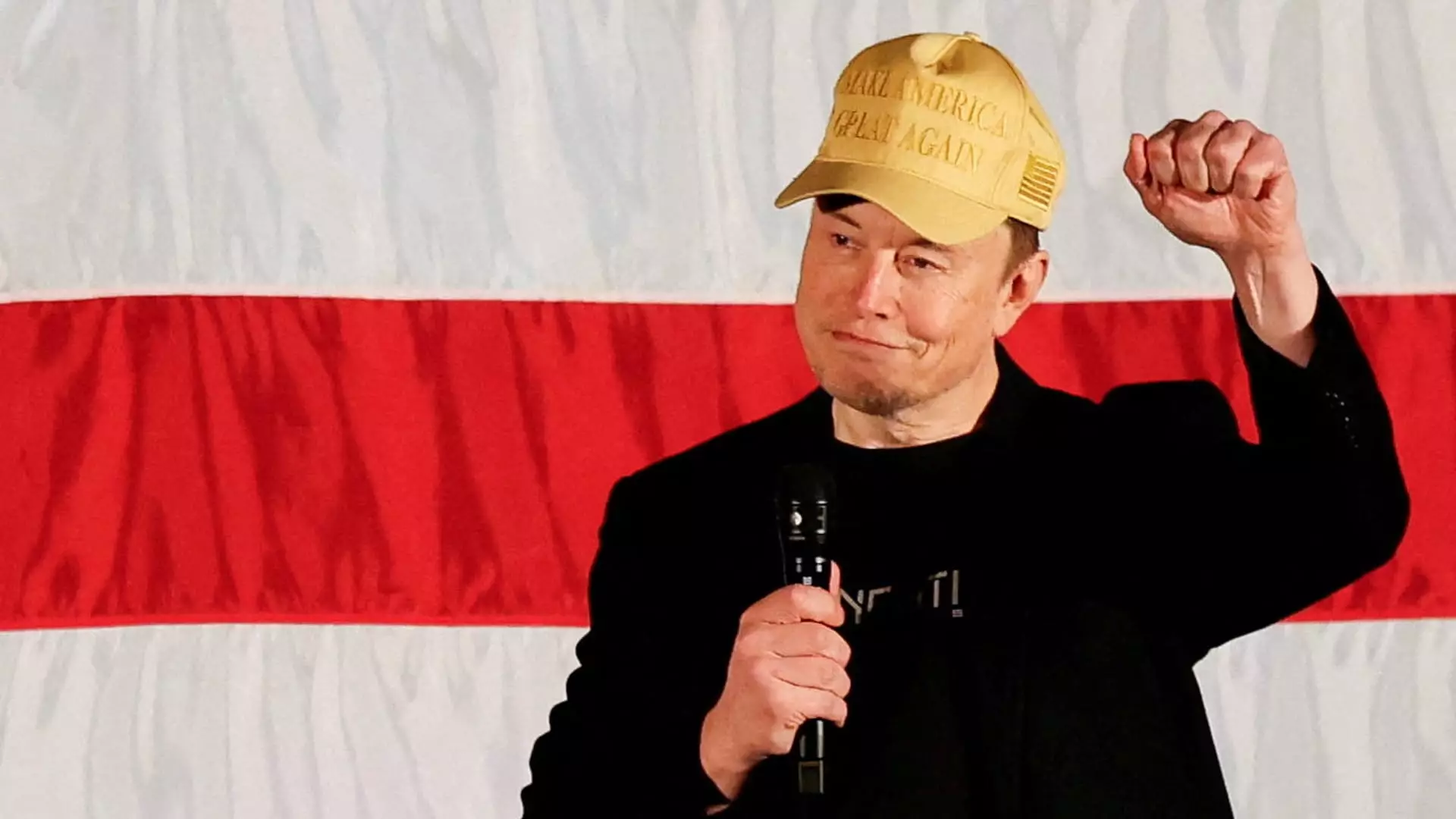The recent political endeavours of billionaire entrepreneur Elon Musk have sparked intense debate regarding the ethical implications of his actions. During a speaking event in Harrisburg, Pennsylvania, Musk announced his plan to distribute $1 million daily to registered voters signing a petition for his pro-Trump political action committee. While Musk claims this initiative will stimulate voter registration in crucial swing states, critics suggest it may contravene federal election laws and underscores a broader issue concerning the influence of wealth in the democratic process.
Musk unfurled his proposition to a crowd of supporters, asserting that he would award substantial prize money every day leading up to the election. By spotlighting an individual from the audience, who had signed the petition, Musk effectively transformed his financial offering into a spectacle, promoting engagement in a critical electoral moment. “I think this is kind of fun, and you know, it seems like a good use of money,” he stated, appealing to the audience’s excitement and interest.
However, the question arises: is this ‘fun’ approach genuinely beneficial for democracy? Critics argue that awarding money for petition signatures distorts the voter registration process and raises concerns about the integrity of elections. By positioning the campaign as a blend of entertainment and engaged civic duty, Musk may inadvertently undermine the serious nature of voting, reducing it to a mere transactional relationship.
Legal experts, including Rick Hasen, a professor of law at UCLA, have raised alarms about the implications of Musk’s initiative. According to Hasen, the scheme appears to directly violate federal law, specifically regulations prohibiting payment in exchange for voter registration or voting. The legal framework of the United States is designed to maintain a clear separation between political financing and voter influences, aimed at protecting democratic integrity.
Musk’s approach can be seen as a chapter in a longstanding narrative where influential figures leverage their wealth to reshape political landscapes. As Hasen aptly noted, Congress has determined that democracy must not be subject to the highest bidders, reflecting a commitment to safeguarding the electoral process from corruption.
Throughout the event, Musk’s political commentary extended beyond the announcement of his financial incentives. He made startling remarks about government functionality and expressed disdain for regulatory agencies, suggesting that many governmental bodies hinder progress. “We should not trust the government, really. We just shouldn’t,” Musk proclaimed, despite the fact that his business ventures have benefited from governmental contracts and support.
His overt criticism of political figures, especially the current administration, reinforces the division between Musk’s vision for the future and existing governmental structures. Emphasizing deregulation and advocating for a marketing-driven approach to societal issues, Musk mirrors sentiments long held by certain factions within the Republican party. Yet, through his rhetoric, he simultaneously risks alienating those who profoundly believe in the role of government in ensuring equity and safety within society.
Voter Perception and the Role of Wealth in Politics
Musk’s appearance and statements elicited mixed reactions from attendees, revealing a complex interplay between charisma, wealth, and trust in political figures. While some view him as a revolutionary thinker who challenges the status quo, many individuals are skeptical of whether a billionaire with controversial views truly represents their best interests. The paradox lies in the notion that a tech mogul, whose companies often rely on government contracts, positions himself as a critique of those very institutions.
Furthermore, the reliance on monetary incentives to encourage voter engagement risks eroding trust. If citizens perceive that wealth alone determines political influence, the resulting cynicism could lead to voter fatigue and disengagement. The complexities of Musk’s approach highlight a pressing issue within American democracy: the tension between engaging citizens and commodifying their political actions.
As Musk embarks on this unusual initiative, the potential ramifications of intertwining monetary incentives with voter participation cast a shadow over his intentions. The overarching themes of wealth, influence, and political engagement invite a necessary dialogue about the ethical frameworks governing election processes. When financial power begins to dictate voter behavior, the very essence of democracy is compromised.
In an era where public trust in electoral systems seems fragile, the conversation surrounding Musk’s political maneuvers serves as a reminder of the importance of maintaining the integrity of democratic practices, free from the pervasive influence of wealth and profit.


Leave a Reply